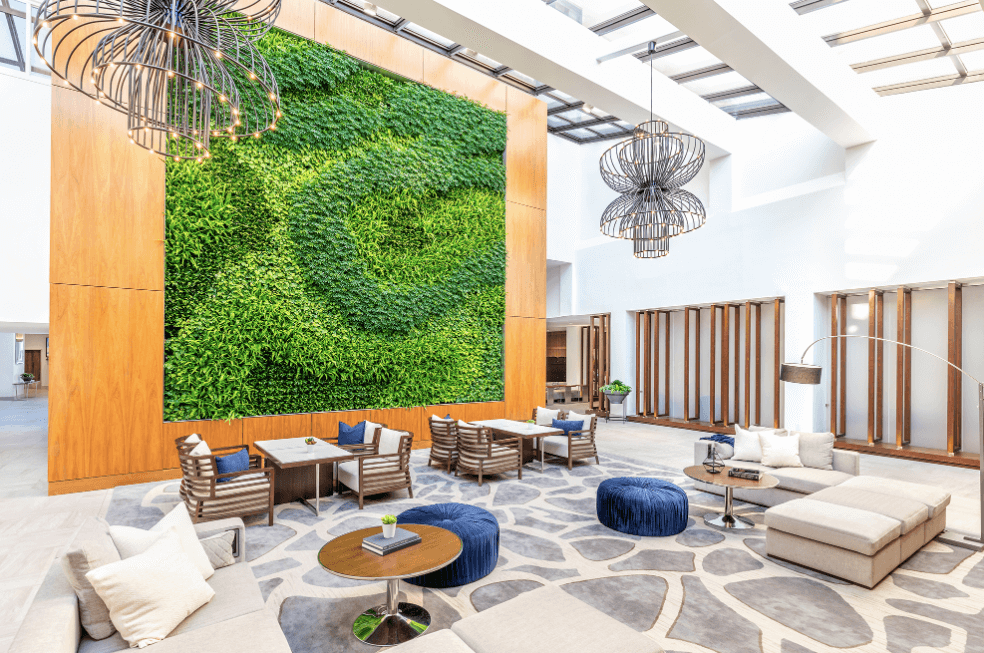Hospitality is probably the worst-hit industry in these difficult economic times. As cafes, restaurants, and bars are allowed to open incrementally, owners must think of novel ways to lure customers to return and spend. Venues and brands need to put contingency plans in place should another globally disruptive event occur. Hospitality cannot simply return to business as usual because the benchmark of normal will have shifted dramatically. Instead, industry professionals will have to redefine the concept of hospitality means entirely.
Hospitality and social media go hand in hand. Now more than ever, socials are necessary to maintain relationships with patrons. Many brands have had to develop or at least refine their delivery strategies as well as their brand positioning. It is crucial to differentiate amidst a crowded and ruthless market.
Restaurants, chefs and other hospitality entities are providing comfort food through a variety of means, be it podcasts, social media posts, free recipes, tutorials, live chats and of course, produce boxes, meal kits and complete meals. The aim is to connect with your customers on a deep enough level that they will want to return as restrictions ease.
Recalibrated social media and delivery options post-lockdown mean that the hospitality industry will work in both distributive and consolidated ways. Post-lockdown, many consumers may find that they actually prefer an in-home experience, whether it be gourmet takeaway, meal kits, tutorials, behind the scenes videos, or any other offering that brings your brand to their home.
The hospitality industry has changed in a fundamental way where the dine-in experience will no longer be the primary income source, deliveries will remain either the primary income source or at least on-par with dine-in. This shift in the business model could mean that food businesses could save on fixed costs like utilities, rent, or insurance as the spaces they operate in change. To get competitive online quotes for business insurance to balance the cover you need and the cost you can afford, check out BizCover.
A great case study of an effective and early responder to the pandemic was American Mexican chain Chipotle. They organised Zoom and Instagram live-streams. Major celebrities and musicians were invited to take part and featured time-limited vouchers for viewers. Another interactive social media strategy is employed by design studio Kitchen Theory. They are helping consumers recreate a gourmet at home dining experience featuring music, a six-course menu, table dressings, headphones, texture cubes and more. A virtual chef will even host you for the night. Each brand knows their niche and connects with them effectively and authentically.
Another great adaptive brand is Asian hotel group Meliá. Their head chef is sharing his acclaimed recipes over WeChat in GIF format. Eager to keep up, Marriott is filming cooking classes in several of its hotels. Hilton has taken a different approach and switching it up between exercise and cooking classes. Indian hotels have found that a product-driven approach is more appropriate to their market. Intercontinental Chennai is providing food delivery to their regular customers. The TJ group is offering wellness and food packs.
One way to look at these brand innovations is to view them as playing catch-up with established media entities. A year ago Bon Appétit by Condé Nast launched a virtual restaurant and delivery platform through GrubHub. Condé Nast is also planning to open up its own hotels.
Certain brands are going the extra mile and connecting to their consumers through novel platforms. In the US, Denny’s has official accounts on major gaming platforms, which they use to distribute discount codes to other players. Denny’s was so successful that its Nintendo Switch account maxed out its friends limit. Airbnb has understandably seen its bookings plummet. They have brought out a paid platform where hosts and guides can stream tutorials in anything and everything.
While unexpected, challenging and often costly, the level of innovation that COVID-19 has forced has undoubtably changed the hospitality industry for the better. Customers now expect new and innovative digital engagement across a range of channels in addition to multiple deliverable options. As lockdown eases, it could be weeks or even months before hotels and bars build back their previous levels of customer density. New marketing strategies, platforms and revenue streams will be imperative.
Hospitality brands globally are reviving pre-pandemic trends and sky-rocketing them to success. Dyce Dessert Parlour in London and Doko Bar in Shenzen offer perfect food photography opportunities. COVID-19 has proved that the culinary experience as a whole, whether virtual or deliverable, can be as important as the traditional dine-in experience. Brick and mortar restaurants have been struggling to adapt to a fast-paced delivery model. COVID-19 has forced some of the most exclusive restaurants to effectively cater to takeaway and pickup customers.
The concept of a hospitality brand being tethered in time and space is becoming redundant. Brand offerings will become diffuse, distributed in multiple physical and social forms.




